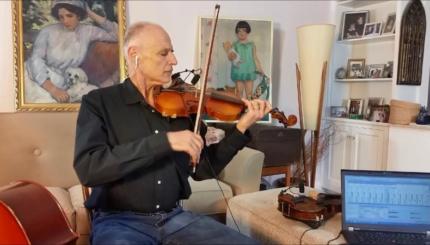Earlier this month, I had the opportunity to conduct a workshop on oral history techniques at Hendrix College in Conway, Arkansas. While there, I met Ruth Frenkel, who has lived in Conway since 1958. (Full disclosure: her daughter, Ellen Kirsch, heads up Hendrix’s Crain-Maling Center of Jewish Culture and had coordinated my visit). When Ruth told me that her family had escaped from Germany in 1937 and settled in McGehee, Arkansas, I had to hear more. Fortunately, I had my equipment with me on the trip.
So, the next morning, I went over to Ruth’s house and conducted a short oral history interview.
Here is an excerpt:
http://blip.tv/institute-of-southern-jewish-life/escaping-germany-settling-in-mcgehee-arkansas-6549723
Ruth’s uncle Adolph was not only in contact with his family, but he managed to visit Germany in advance of the coming war. According to Ruth’s telling, he already knew enough about conditions there to secure visas for the family before his trip.
Even with years of experience in the culture and history of Southern Jews, I have trouble shaking the assumption that rural Jewish communities were cut off from international news and the families they had left in the Old Country, whatever it might be. Stories like Ruth’s constantly remind me that many Jews in the American South, even in the years before television, were keenly aware of the challenges that Jews faced in Europe. While Jewish life in McGehee and other southern towns was marked by geographical isolation, the families who settled there participated in transnational Jewish networks, whether through international aid organizations, the Jewish press or, in this case, family connections.
Of course, for more on the Jewish history of McGehee (and nearby Dumas), you should visit our Encyclopedia of Southern Jewish Communities.


